CTRL+K
CTRL+K
The sacred month of Ramadan is a very significant time for Muslims in Morocco. It is celebrated each year based on the lunar calendar with great devotion and happiness. During this holy period, adult Muslims observe fasting (Sawm) from dawn to sunset. This means they do not eat, drink, smoke or engage in any sexual relations during this time. Fasting helps people develop self-discipline, spiritual reflection, empathy for the less fortunate, and a sense of unity within the community.
During the holy month of Ramadan, Moroccans observe a very special tradition. It is a time for spiritual growth, self-control, and devotion to Allah (God). Ramadan is a reminder of the sacred occasion when the Quran was revealed to Prophet Muhammad. To show respect, Moroccans fast from dawn until dusk. This means they do not eat, drink, or engage in worldly pleasures during daylight hours. However, before sunrise and after sunset, they are allowed to eat and drink. Ramadan teaches self-discipline, sacrifice, and compassion. It brings families and communities together in a beautiful way.
During the holy month of Ramadan, people in Morocco follow a special daily routine. This routine is centered around two main meals: Suhoor and Iftar. Suhoor is a pre-dawn meal that families share together before the sun rises. They eat a nourishing meal to give them energy and strength to last throughout the day while fasting. After many hours of not eating or drinking, the Adhan (call to prayer) can be heard at sunset. This call signals that it’s time to break the fast (called iftar) when people start by eating some dates, which is a tradition. Then they enjoy a big delicious meal with their family and loved ones.
During the holy month of Ramadan, Moroccan cuisine truly comes alive with an array of delectable and mouthwatering dishes served for Iftar like Briouats (stuffed pastries), Chebakia (honey-drenched pastries) ans msamen , which is the meal that marks the breaking of the daily fast. One of the most beloved and widely enjoyed specialties is Harira, a hearty and nourishing soup that is brimming with a medley of flavors and textures. This savory soup is typically made with a combination of tender lentils, succulent pieces of lamb or beef, and a variety of aromatic spices, creating a truly comforting and satisfying dish that perfectly satisfies the cravings after a long day of fasting.
Ramadan is a sacred time when Muslims practice self-discipline and strengthen their relationship with Allah. It’s not just about avoiding food and drink from dawn till dusk. It also encourages spiritual growth through various acts of worship. Muslims devote more time to prayer, reading the Quran, and giving charity (Zakat) during this blessed month. The mosques become lively centers of devotion as Muslims gather for special evening prayers called Taraweeh. Through Taraweeh, Muslims seek spiritual purification, forgiveness, and blessings from Allah, coming together in mosques to recite verses from the holy Quran.
During the holy month of Ramadan, Moroccans come together in a spirit of unity and compassion. This special time of year encourages kind and generous acts, with people feeling inspired to help those in need. The tradition of “Iftar al-Sa’im,” which means inviting those who are fasting to break their fast, shows how important it is to support each other as a community. Individuals, families, and organizations all pitch in to distribute food, supplies, and aid to the less fortunate. Donating to the poor and providing meals to break the daily fast are seen as great acts of kindness and charity during Ramadan.
When evening falls, the vibrant cities of Morocco burst into life with bustling markets and lively streets. Families and friends gather for a leisurely evening stroll, a tradition known as Tarahoul, immersing themselves in the festive atmosphere. They savor the delightful aromas of sweet treats and sip refreshing beverages, savoring the joyous energy that fills the air.
Eid al-Fitr is an exciting and happy festival that comes after the holy month of Ramadan. When Eid al-Fitr arrives, people in Morocco wear their best and most beautiful clothes. They give gifts to their loved ones, like toys for children and new clothes for adults. Everyone goes to the mosque together for special Eid prayers. After praying, families and friends get together for a big feast with lots of delicious foods.
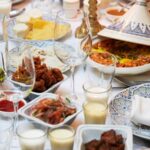
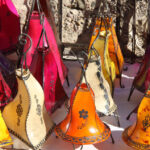
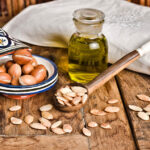



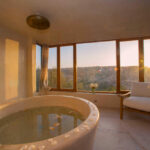
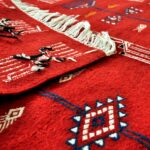

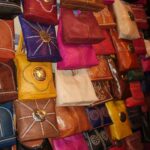
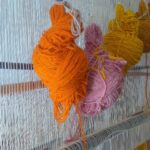

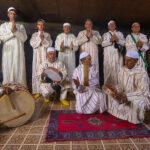


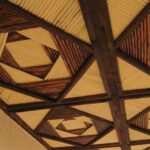
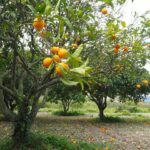
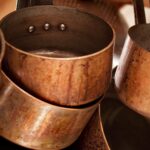

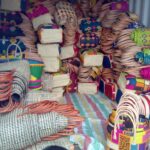

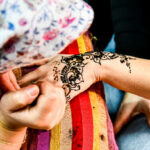
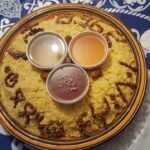

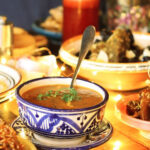
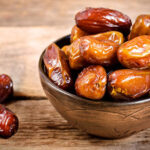

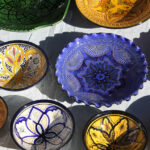
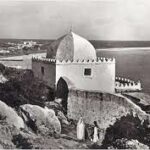

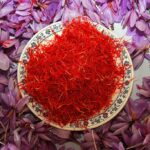
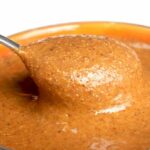
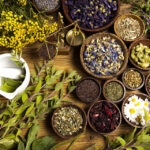

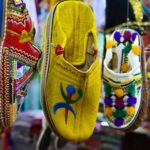
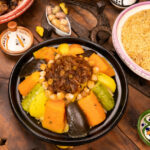
There are no results matching your search.
Reset